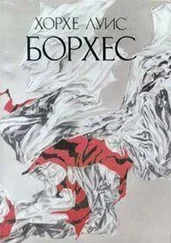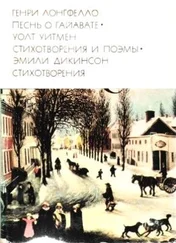Уолт Уитмен - The Wound Dresser
Здесь есть возможность читать онлайн «Уолт Уитмен - The Wound Dresser» — ознакомительный отрывок электронной книги совершенно бесплатно, а после прочтения отрывка купить полную версию. В некоторых случаях можно слушать аудио, скачать через торрент в формате fb2 и присутствует краткое содержание. Жанр: foreign_prose, История, foreign_edu, foreign_antique, на английском языке. Описание произведения, (предисловие) а так же отзывы посетителей доступны на портале библиотеки ЛибКат.
- Название:The Wound Dresser
- Автор:
- Жанр:
- Год:неизвестен
- ISBN:нет данных
- Рейтинг книги:4 / 5. Голосов: 1
-
Избранное:Добавить в избранное
- Отзывы:
-
Ваша оценка:
- 80
- 1
- 2
- 3
- 4
- 5
The Wound Dresser: краткое содержание, описание и аннотация
Предлагаем к чтению аннотацию, описание, краткое содержание или предисловие (зависит от того, что написал сам автор книги «The Wound Dresser»). Если вы не нашли необходимую информацию о книге — напишите в комментариях, мы постараемся отыскать её.
The Wound Dresser — читать онлайн ознакомительный отрывок
Ниже представлен текст книги, разбитый по страницам. Система сохранения места последней прочитанной страницы, позволяет с удобством читать онлайн бесплатно книгу «The Wound Dresser», без необходимости каждый раз заново искать на чём Вы остановились. Поставьте закладку, и сможете в любой момент перейти на страницу, на которой закончили чтение.
Интервал:
Закладка:
As I write this, in May, 1863, the wounded have begun to arrive from Hooker’s command, from bloody Chancellorsville. I was down among the first arrivals. The men in charge of them told me the bad cases were yet to come. If that is so, I pity them, for these are bad enough. You ought to see the scene of the wounded arriving at the landing here, foot of Sixth street, at night. Two boat-loads came about half-past seven last night. A little after eight it rained, a long and violent shower. The poor, pale, helpless soldiers had been debarked, and lay around on the wharf and neighborhood, anywhere. The rain was, probably, grateful to them; at any rate they were exposed to it.
The few torches light up the spectacle. All around on the wharf, on the ground, out on side places, etc., the men are lying on blankets, old quilts, etc., with the bloody rags bound around their heads, arms, legs, etc. The attendants are few, and at night few outsiders also—only a few hard-worked transportation men and drivers. (The wounded are getting to be common, and people grow callous.) The men, whatever their condition, lie there and patiently wait till their turn comes to be taken up. Near by the ambulances are now arriving in clusters, and one after another is called to back up and take its load. Extreme cases are sent off on stretchers. The men generally make little or no ado, whatever their sufferings—a few groans that cannot be repressed, and occasionally a scream of pain as they lift a man into the ambulance.
To-day, as I write, hundreds more are expected; and to-morrow and the next day more, and so on for many days.
The soldiers are nearly all young men, and far more Americans than is generally supposed—I should say nine tenths are native born. Among the arrivals from Chancellorsville I find a large proportion of Ohio, Indiana, and Illinois men. As usual there are all sorts of wounds. Some of the men are fearfully burnt from the explosion of artillery caissons. One ward has a long row of officers, some with ugly hurts. Yesterday was perhaps worse than usual: amputations are going on; the attendants are dressing wounds. As you pass by you must be on your guard where you look. I saw, the other day, a gentleman, a visitor, apparently from curiosity, in one of the wards, stop and turn a moment to look at an awful wound they were probing, etc.; he turned pale, and in a moment more he had fainted away and fallen on the floor.
I buy, during the hot weather, boxes of oranges from time to time, and distribute them among the men; also preserved peaches and other fruits; also lemons and sugar for lemonade. Tobacco is also much in demand. Large numbers of the men come up, as usual, without a cent of money. Through the assistance of friends in Brooklyn and Boston, I am again able to help many of those that fall in my way. It is only a small sum in each case, but it is much to them. As before, I go around daily and talk with the men, to cheer them up.
My note-books are full of memoranda of the cases of this summer, and the wounded from Chancellorsville, but space forbids my transcribing them.
As I sit writing this paragraph (sundown, Thursday, June 25) I see a train of about thirty huge four-horse wagons, used as ambulances, filled with wounded, passing up Fourteenth street, on their way, probably, to Columbian, Carver, and Mount Pleasant hospitals. This is the way the men come in now, seldom in small numbers, but almost always in these long, sad processions. Through the past winter, while our army lay opposite Fredericksburg, the like strings of ambulances were of frequent occurrence along Seventh street, passing slowly up from the steam-boat wharf, from Aquia creek.
This afternoon, July 22, 1863, I spent a long time with a young man I have been with considerable, named Oscar F. Wilber, Company G, One Hundred Fifty-fourth New York, low with chronic diarrhœa and a bad wound also. He asked me to read him a chapter in the New Testament. I complied and asked him what I should read. He said, “Make your own choice.” I opened at the close of one of the first books of the Evangelists, and read the chapters describing the latter hours of Christ and the scenes at the crucifixion. The poor wasted young man asked me to read the following chapter also, how Christ rose again. I read very slowly, for Oscar was feeble. It pleased him very much, yet the tears were in his eyes. He asked me if I enjoyed religion. I said, “Perhaps not, my dear, in the way you mean, and yet may-be it is the same thing.” He said, “It is my chief reliance.” He talked of death, and said he did not fear it. I said, “Why, Oscar, don’t you think you will get well?” He said, “I may, but it is not probable.” He spoke calmly of his condition. The wound was very bad; it discharged much. Then the diarrhœa had prostrated him, and I felt that he was even then the same as dying. He behaved very manly and affectionate. The kiss I gave him as I was about leaving, he returned fourfold. He gave me his mother’s address, Mrs. Sally D. Wilber, Alleghany post-office, Cattaraugus county, N. Y. I had several such interviews with him. He died a few days after the one just described.
August, September, October, etc.—I continue among the hospitals in the same manner, getting still more experience, and daily and nightly meeting with most interesting cases. Through the winter of 1863-4, the same. The work of the army hospital visitor is indeed a trade, an art, requiring both experience and natural gifts, and the greatest judgment. A large number of the visitors to the hospitals do no good at all, while many do harm. The surgeons have great trouble from them. Some visitors go from curiosity—as to a show of animals. Others give the men improper things. Then there are always some poor fellows, in the crises of sickness or wounds, that imperatively need perfect quiet—not to be talked to by strangers. Few realize that it is not the mere giving of gifts that does good; it is the proper adaption. Nothing is of any avail among the soldiers except conscientious personal investigation of cases, each for itself; with sharp, critical faculties, but in the fullest spirit of human sympathy and boundless love. The men feel such love more than anything else. I have met very few persons who realize the importance of humoring the yearnings for love and friendship of these American young men, prostrated by sickness and wounds.
February, 1864.—I am down at Culpepper and Brandy station, among the camp of First, Second, and Third Corps, and going through the division hospitals. The condition of the camps here this winter is immensely improved from last winter near Falmouth. All the army is now in huts of logs and mud, with fireplaces; and the food is plentiful and tolerably good. In the camp hospitals I find diarrhœa more and more prevalent, and in chronic form. It is at present the great disease of the army. I think the doctors generally give too much medicine, oftener making things worse. Then they hold on to the cases in camp too long. When the disease is almost fixed beyond remedy, they send it up to Washington. Alas! how many such wrecks have I seen landed from boat and railroad and deposited in the Washington hospitals, mostly but to linger awhile and die, after being kept at the front too long.
The hospitals in front, this winter, are also much improved. The men have cots, and often wooden floors, and the tents are well warmed.
March and April, 1864.—Back again in Washington. They are breaking up the camp hospitals in Meade’s army, preparing for a move. As I write this, in March, there are all the signs. Yesterday and last night the sick were arriving here in long trains, all day and night. I was among the new-comers most of the night. One train of a thousand came into the depot, and others followed. The ambulances were going all night, distributing them to the various hospitals here. When they come in, some literally in a dying condition, you may well imagine it is a lamentable sight. I hardly know which is worse, to see the wounded after a battle, or these wasted wrecks.
Читать дальшеИнтервал:
Закладка:
Похожие книги на «The Wound Dresser»
Представляем Вашему вниманию похожие книги на «The Wound Dresser» списком для выбора. Мы отобрали схожую по названию и смыслу литературу в надежде предоставить читателям больше вариантов отыскать новые, интересные, ещё непрочитанные произведения.
Обсуждение, отзывы о книге «The Wound Dresser» и просто собственные мнения читателей. Оставьте ваши комментарии, напишите, что Вы думаете о произведении, его смысле или главных героях. Укажите что конкретно понравилось, а что нет, и почему Вы так считаете.











